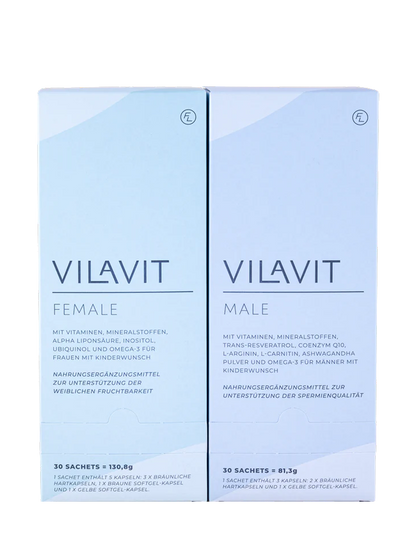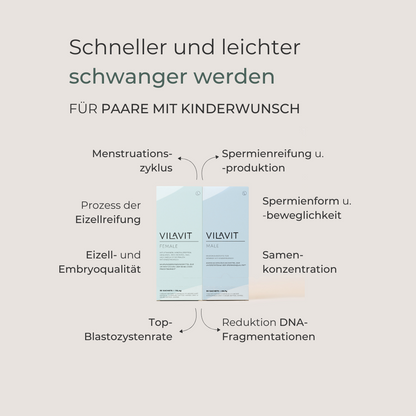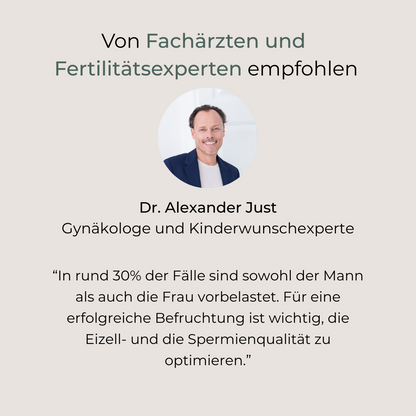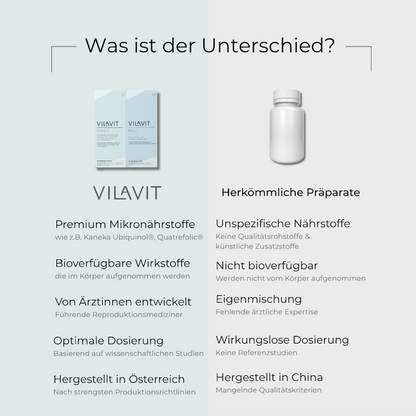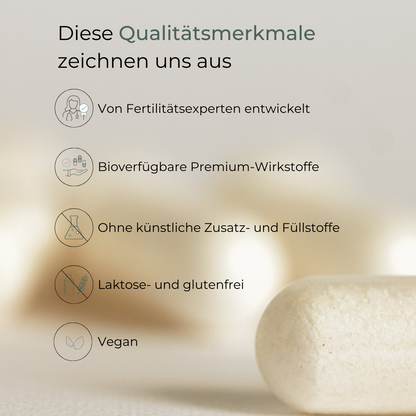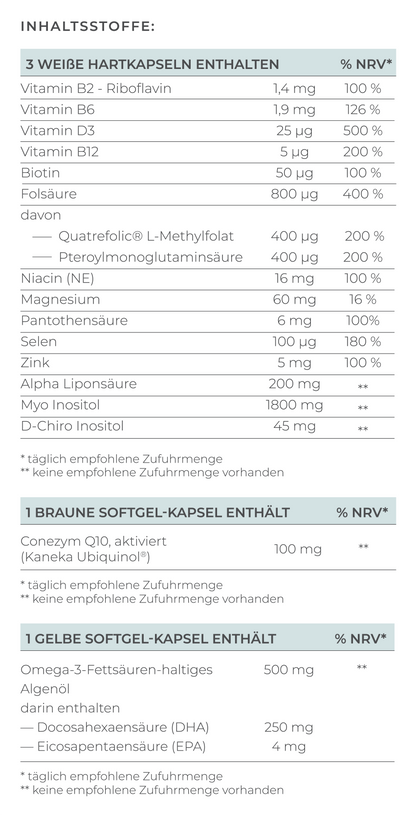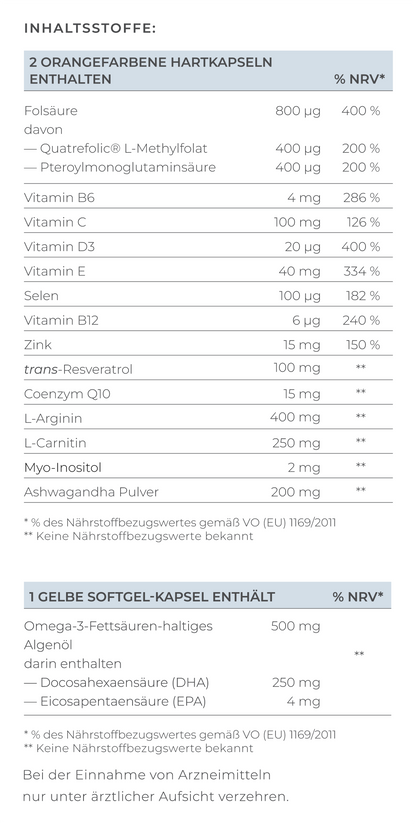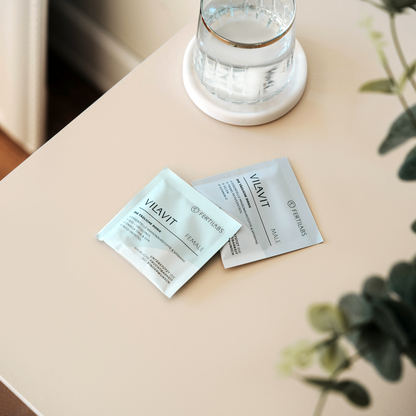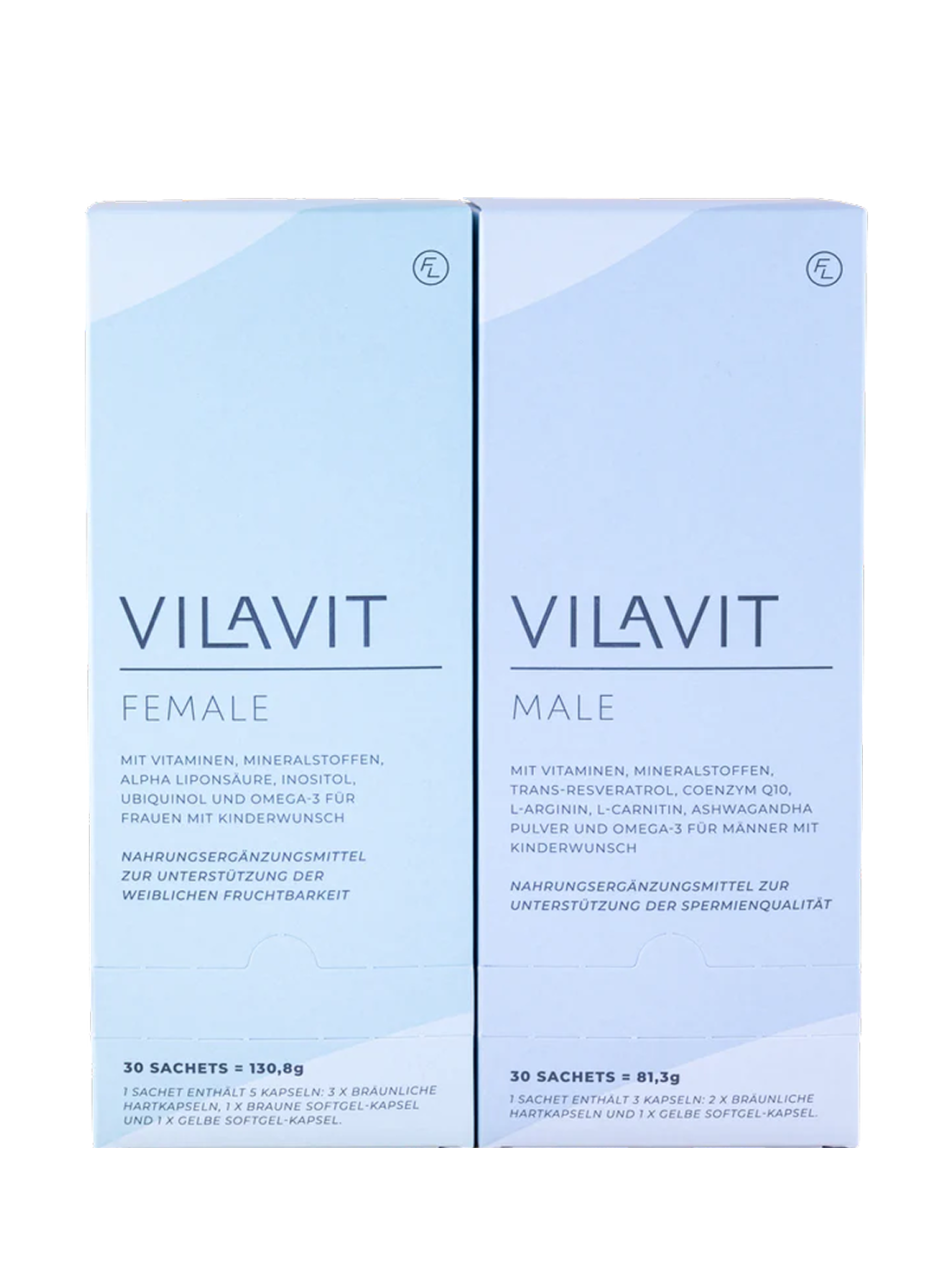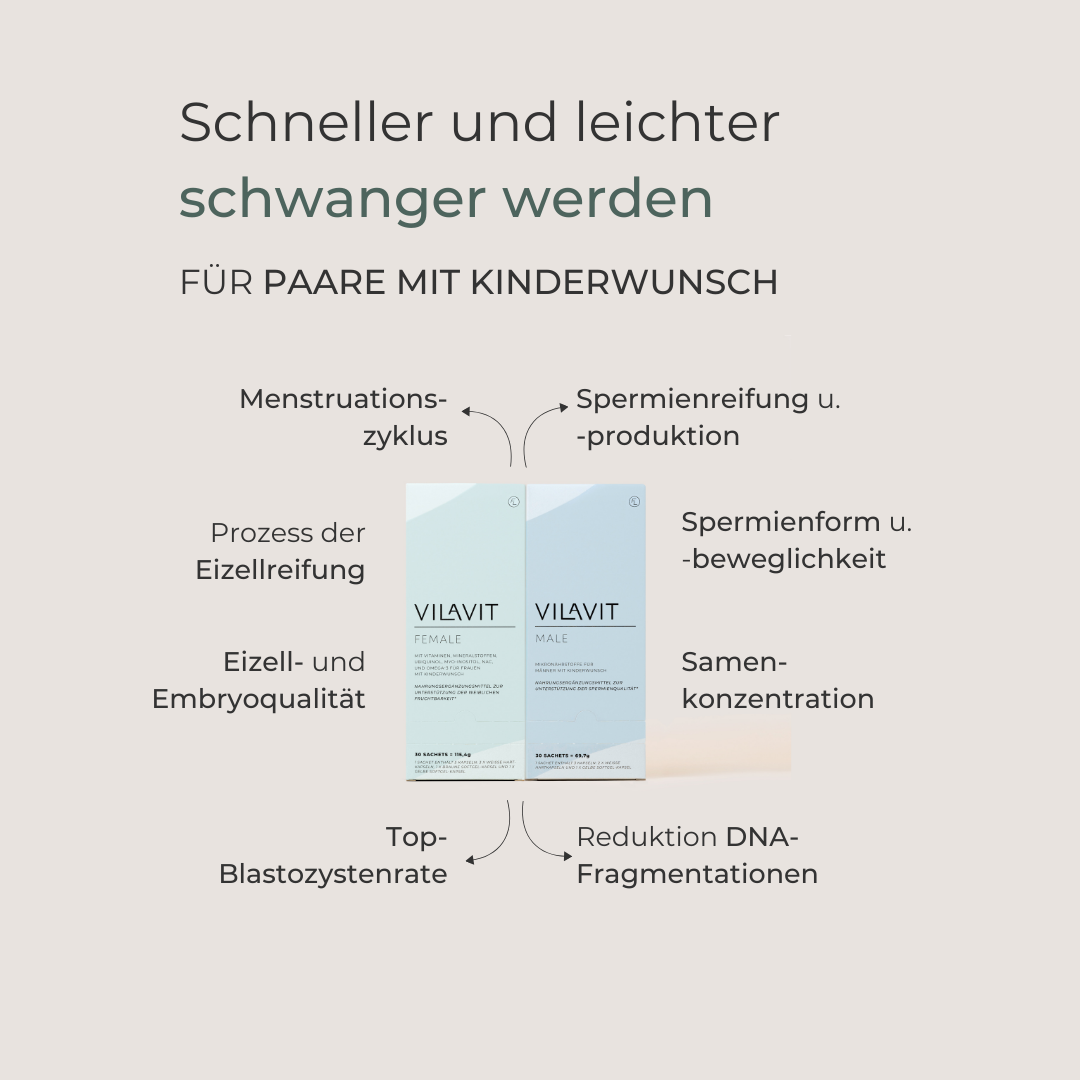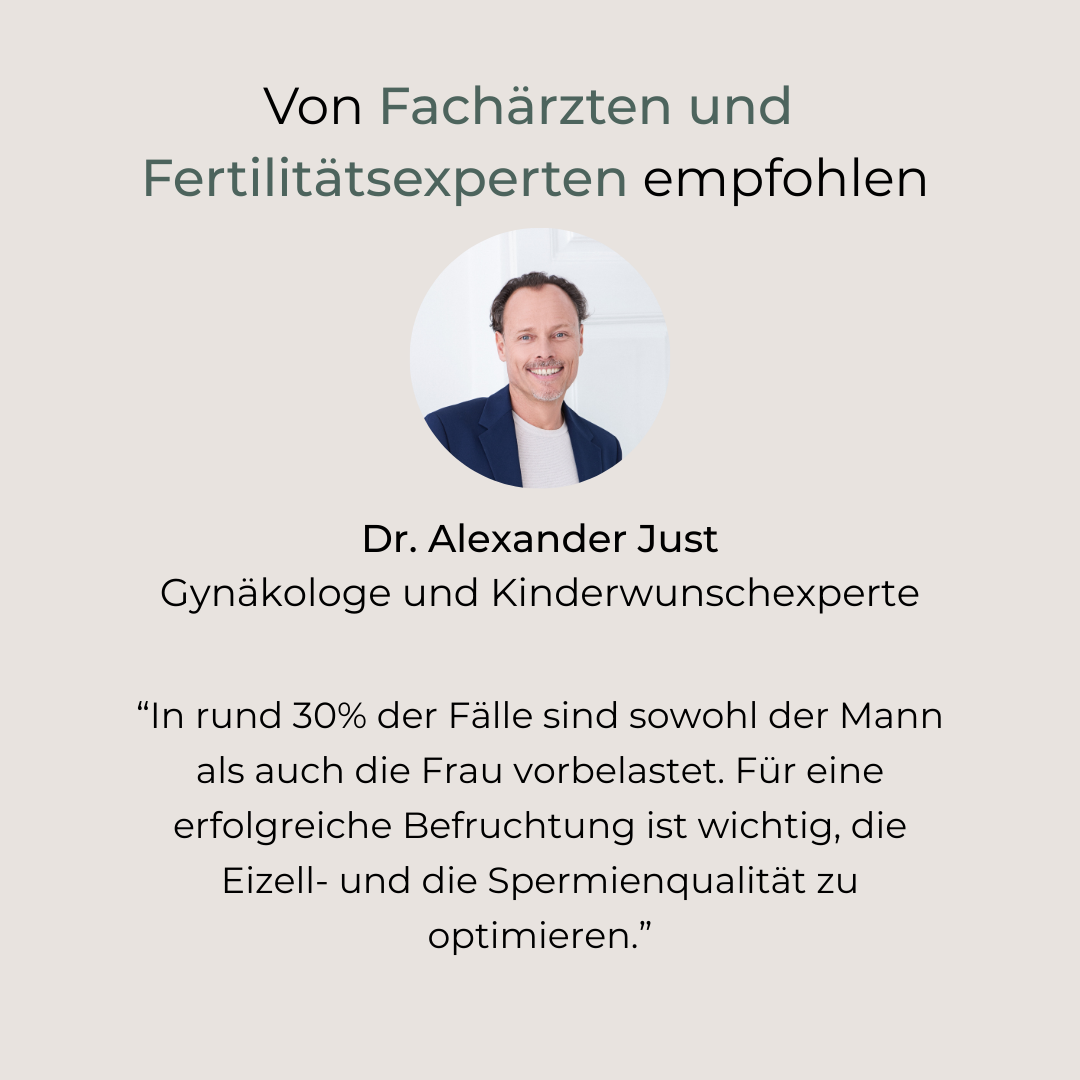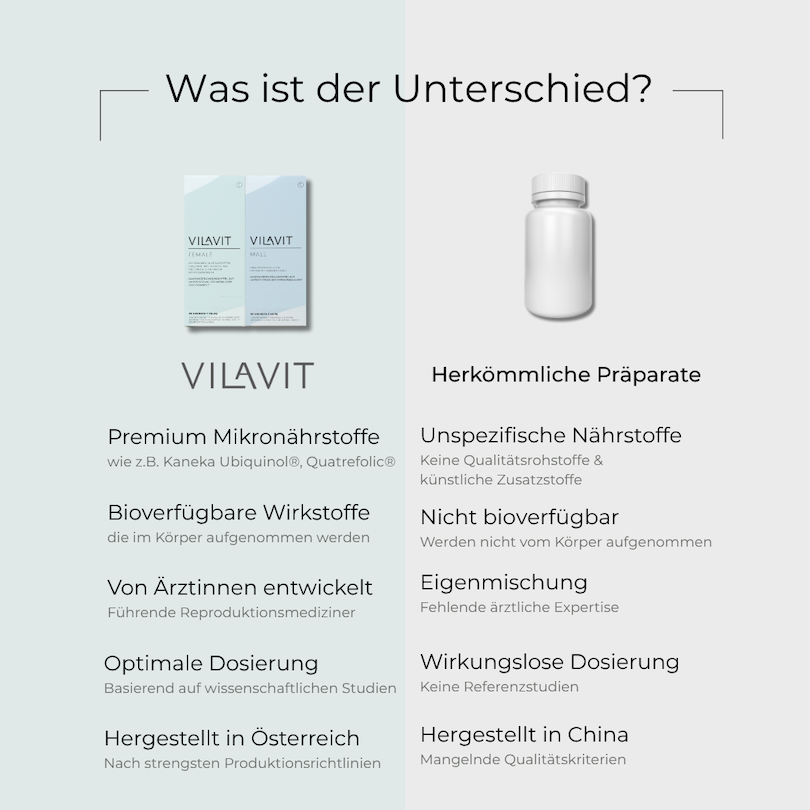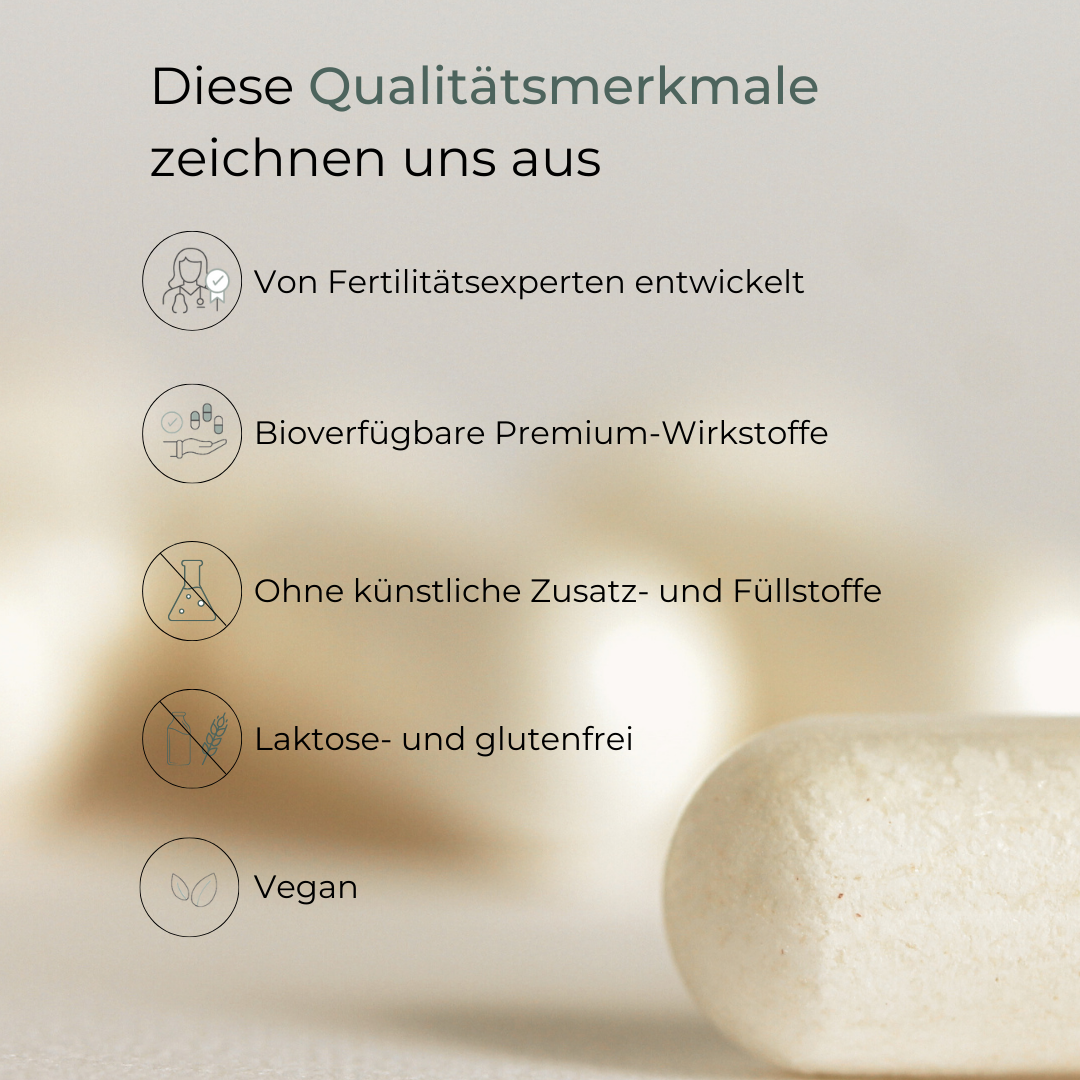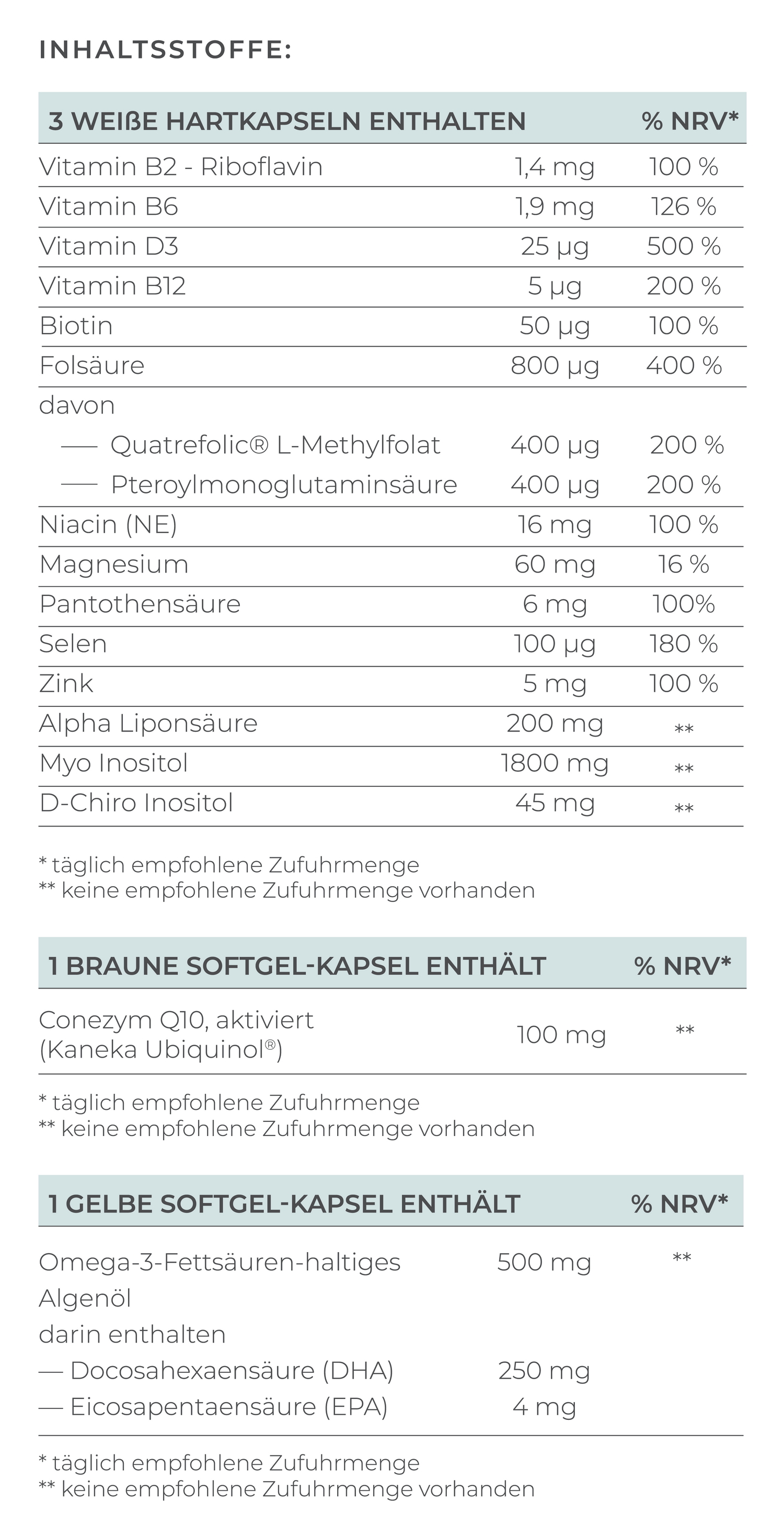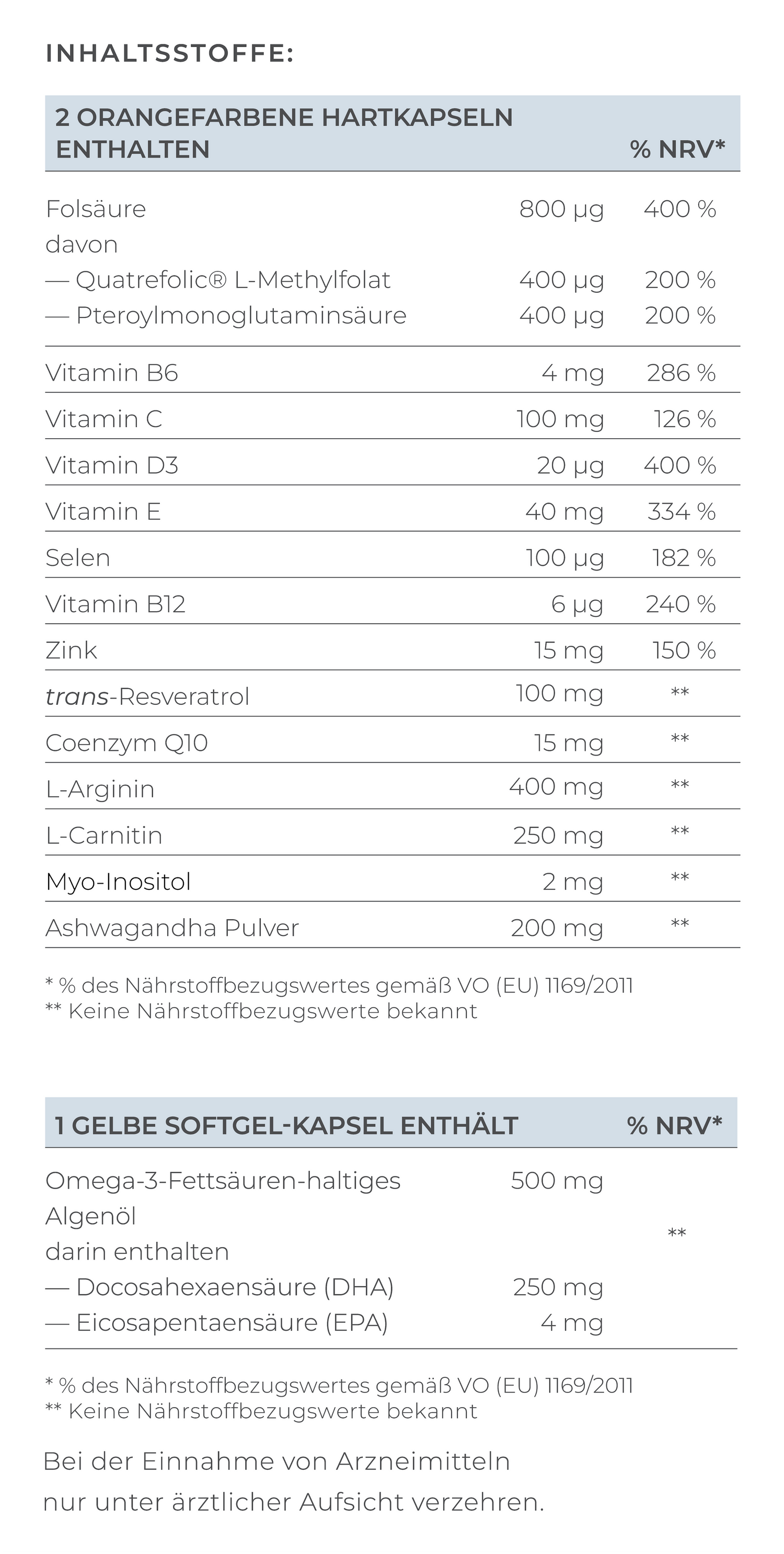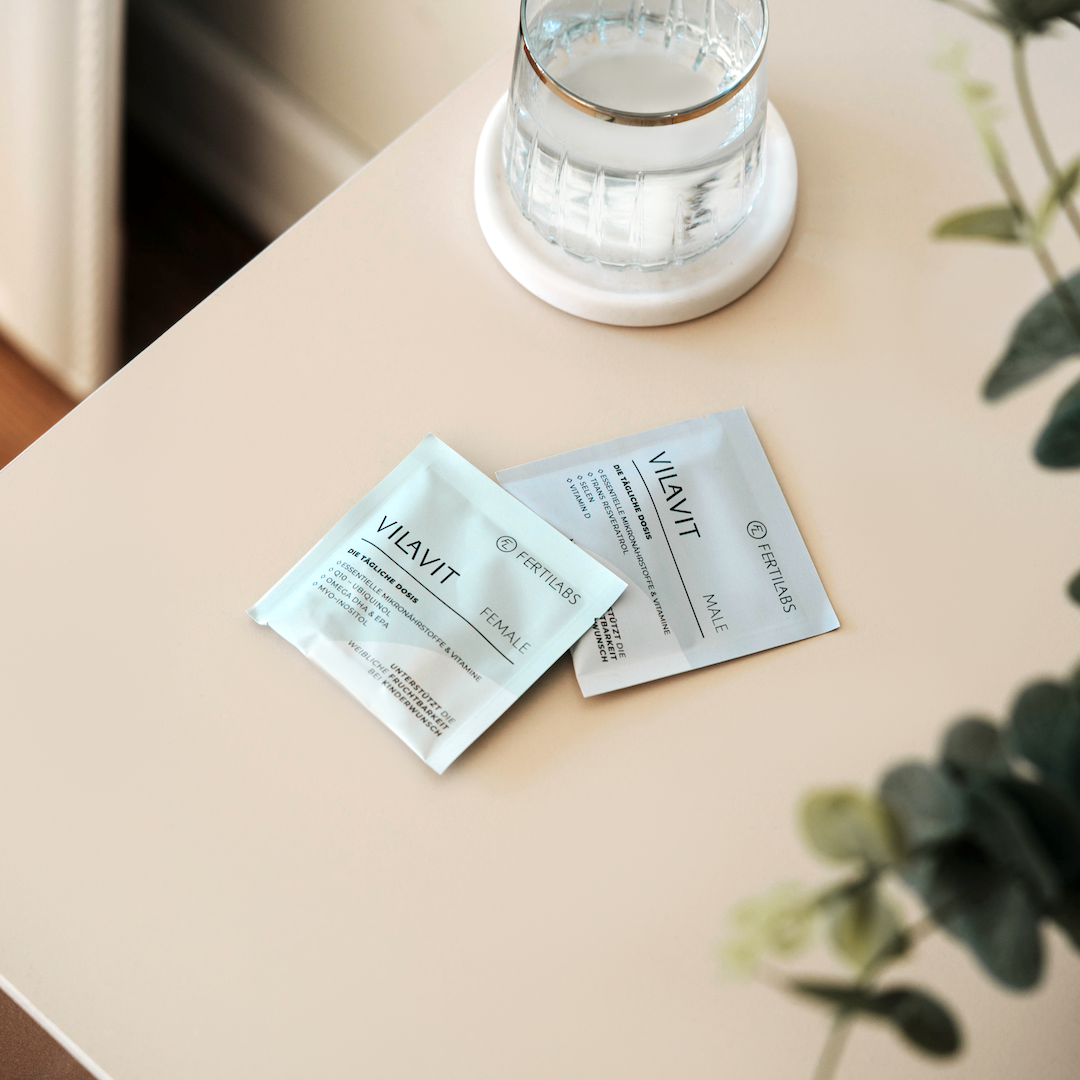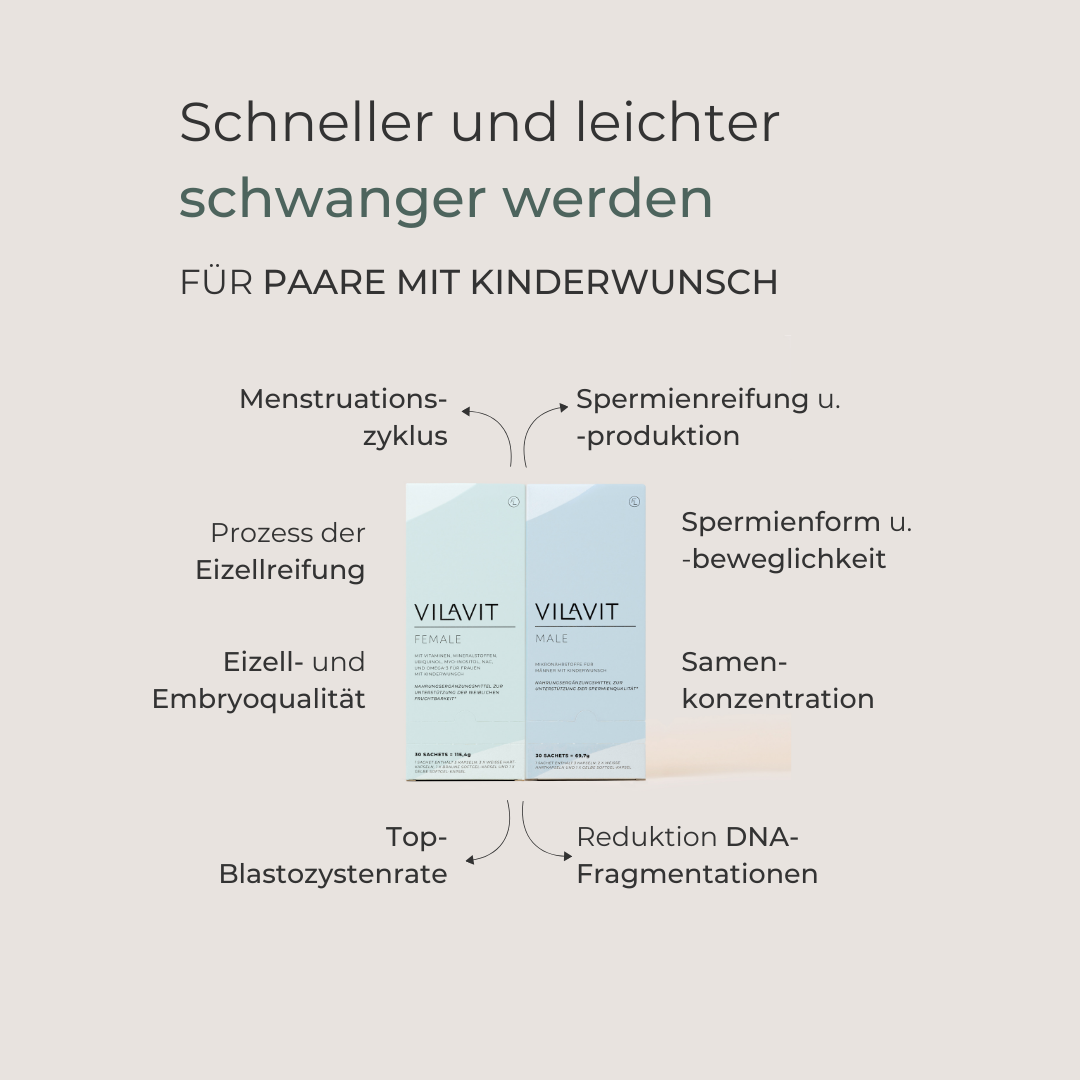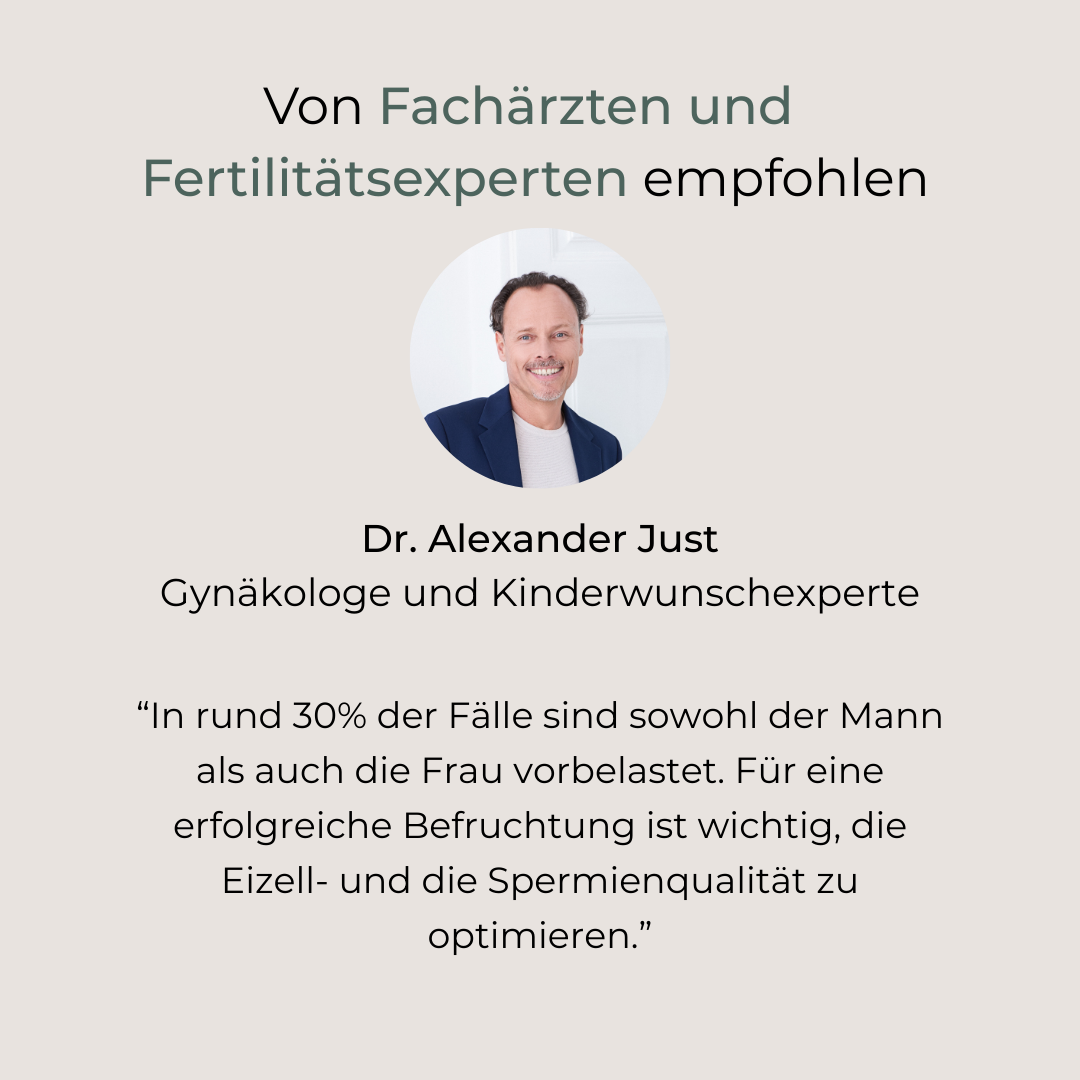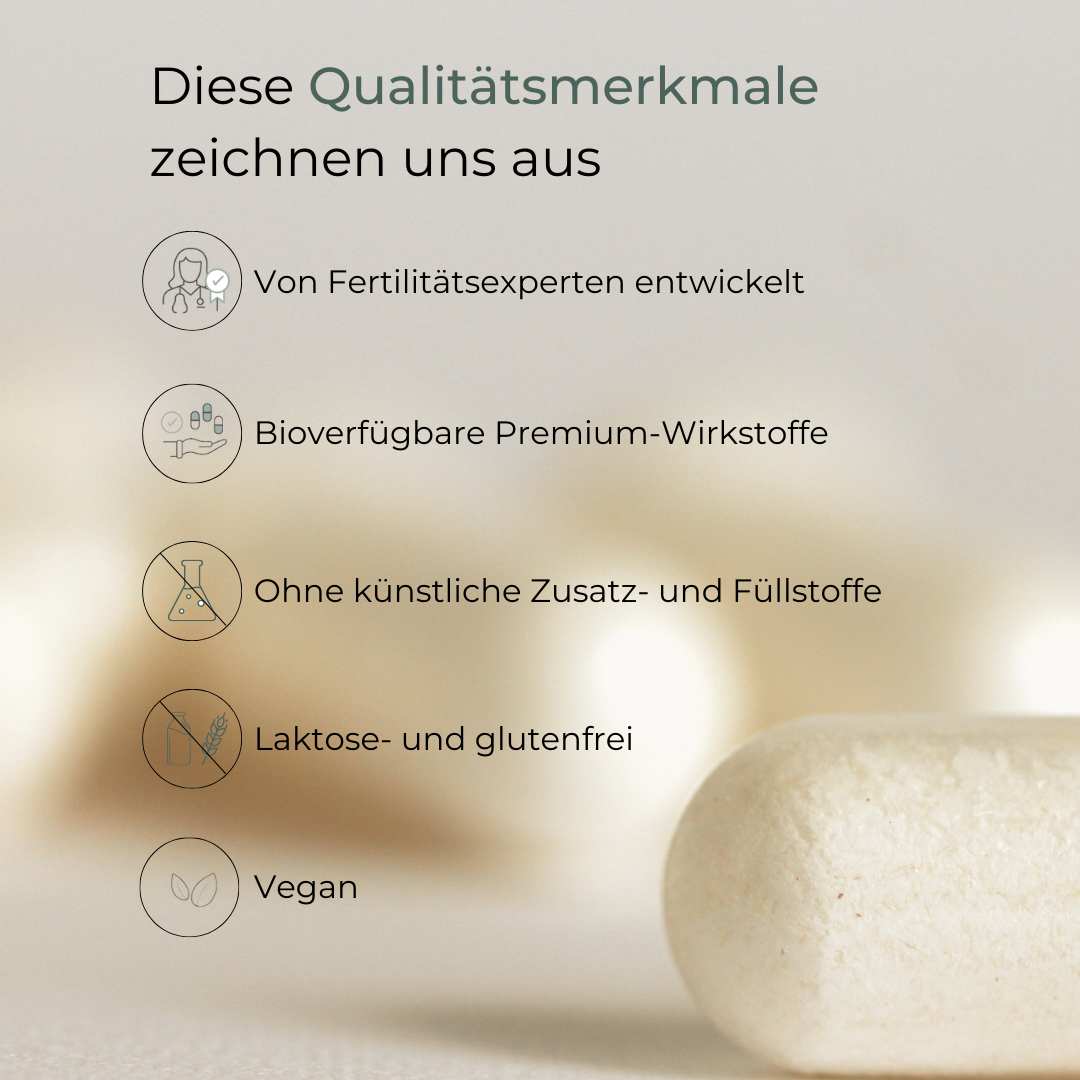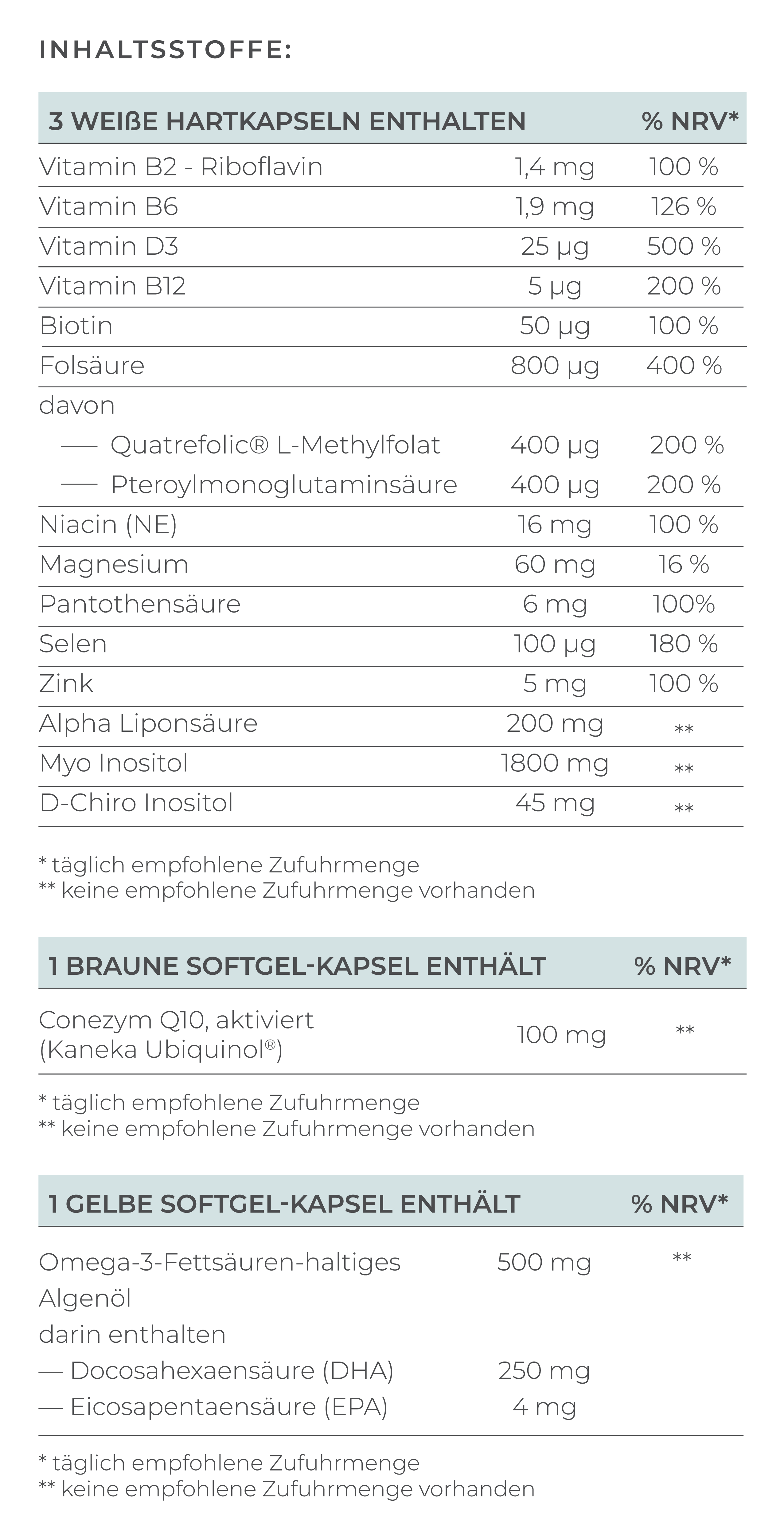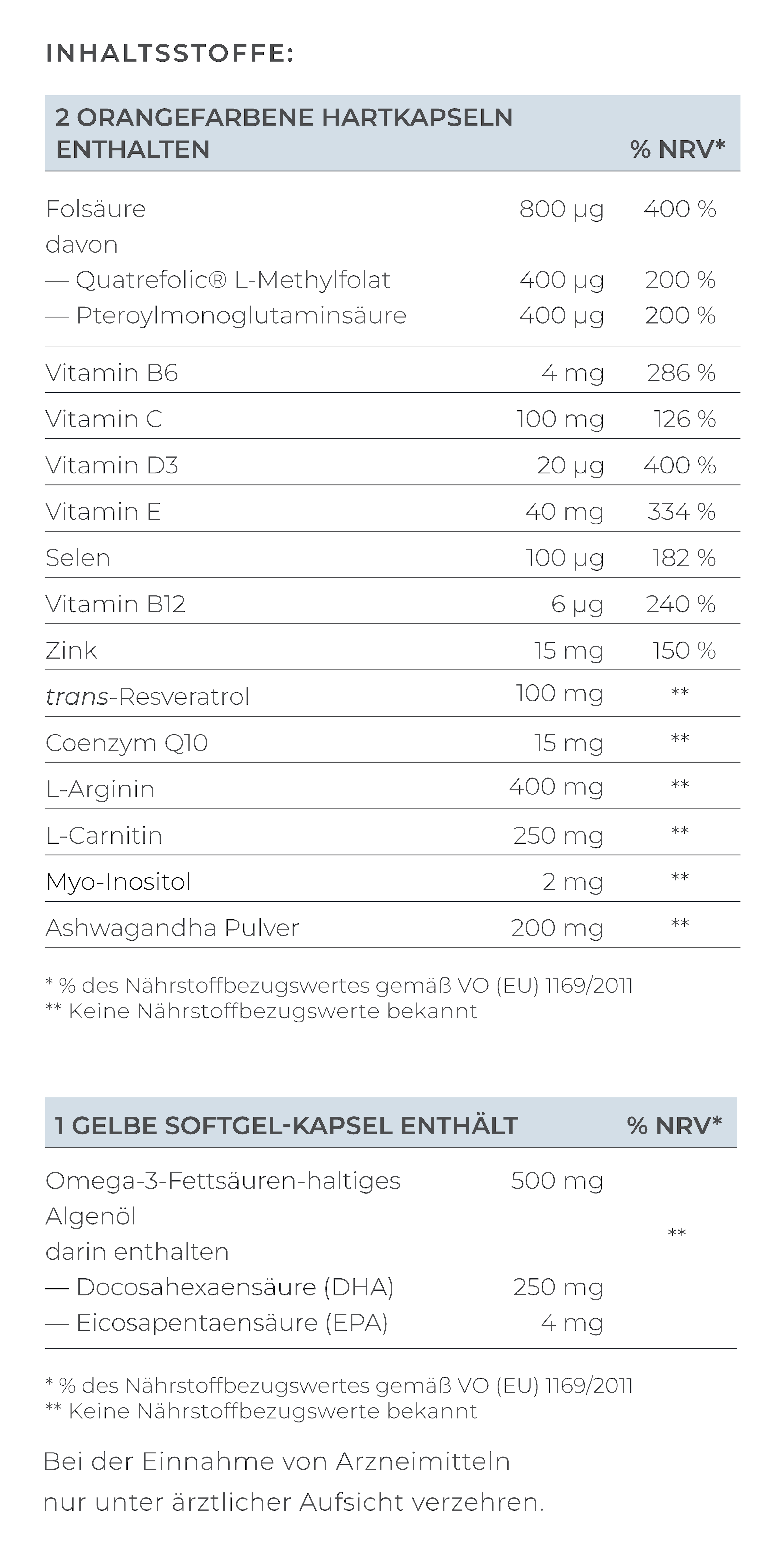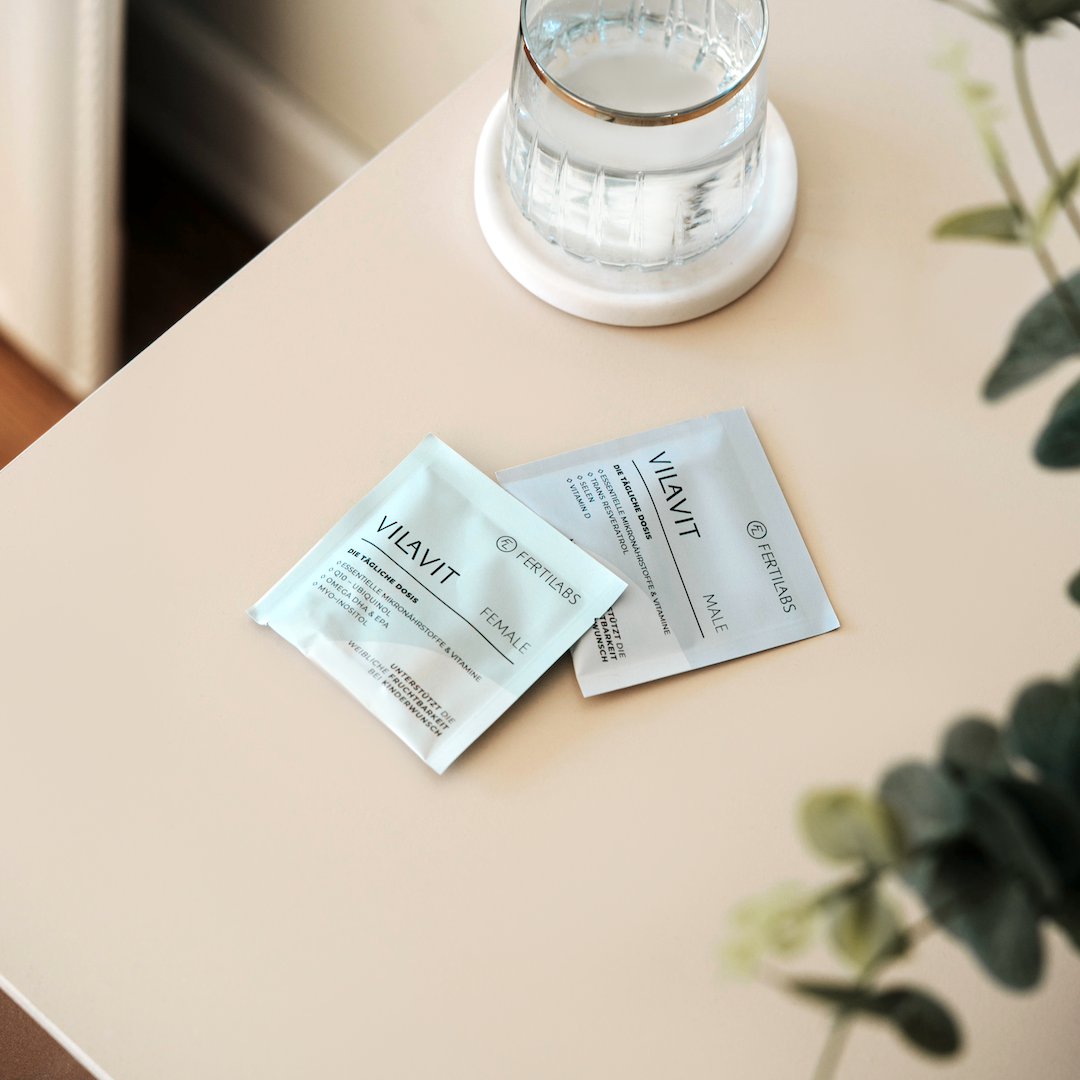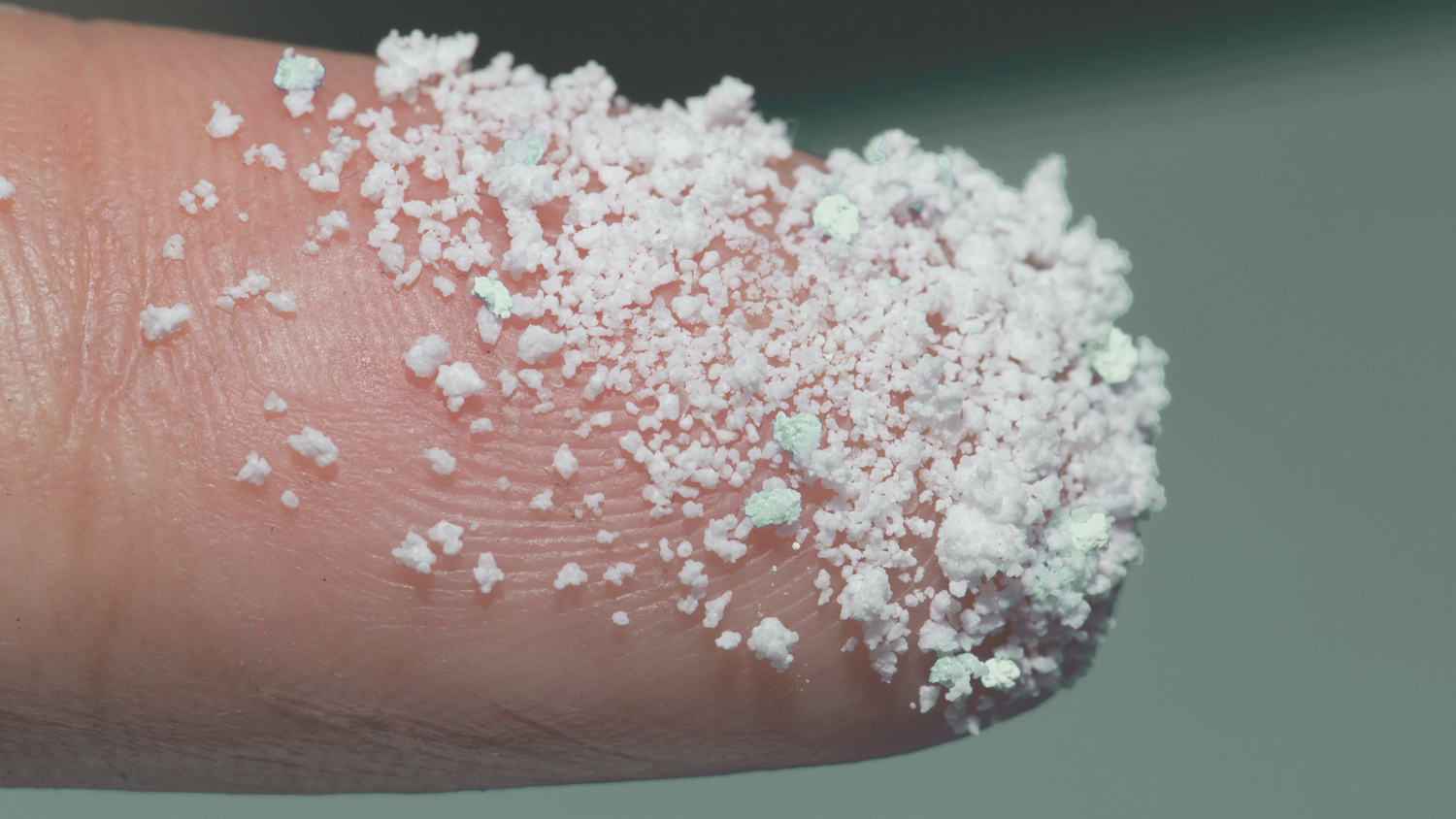Key Points at a Glance
- When it comes to fertility supplements, the quality of the ingredients is crucial, not the quantity.
- Cheap supplements may contain fillers and harmful substances.
- High-quality supplements contain micronutrients in a bioavailable form, which the body can easily absorb and utilize.
- Good supplements are developed by fertility experts and are based on the latest scientific findings.
- An adequate dosage of essential nutrients is critical for effectiveness.
Hands off cheap fertility supplements! Why quality matters for micronutrients.
In the world of supplements, there are a wide variety of options, often accompanied by promises of better health and well-being. However, not all supplements are created equal. When it comes to fertility, the quality of what we put into our bodies is of critical importance. Fertility supplements in the form of high-quality micronutrients and vitamins can make a significant difference in fertility for both men and women. Not all vitamins are the same. There is a risk of taking cheap, ineffective, or even harmful supplements.
The impact of effective micronutrients on fertility
Micronutrients, including vitamins, minerals, and trace elements, play a key role in reproductive health. They're involved in hormone production, cell division, and many other processes essential for fertilization. Deficiency in certain micronutrients can impair fertility.
Quality over quantity
Not all micronutrients are created equal. Cheap dietary supplements might contain fillers, artificial colors, and allergens that could do more harm than good. High-quality supplements are often better tailored to the body's absorption pathways, leading to higher bioavailability, making it easier for the body to absorb them. This allows the nutrients to unleash their full potential.
Bioavailability and absorption
Bioavailability measures how well a nutrient is absorbed and utilized by the body. High-quality micronutrients come in forms that the body easily recognizes and absorbs. This is particularly crucial for minerals like magnesium, zinc, and selenium, which are often present in forms in cheap supplements that the body can barely use.
Effective combination
High-quality supplements often contain a carefully selected combination of micronutrients that work synergistically. This means that the effect of individual nutrients is enhanced through their interaction, further promoting fertility.
Purity of ingredients
High-quality vitamins and nutrients are produced under strict manufacturing conditions ensuring their purity. Contaminants that may be present in cheaper products are thus avoided. Pure ingredients mean less strain on the body and better support for healthy reproductive processes.
Research and development
It is important that supplements are developed by fertility experts based on the latest scientific studies. These products are usually also tested in clinical trials to verify their effectiveness.
Many standard products from drugstores are manufactured by large consumer goods companies that do not focus on the latest science. Therefore, these products often do not offer the same standard of efficacy and effectiveness.
Effective dosage
An effective dosage is crucial for effectiveness. Many products advertise the fact that they cover the complete nutrient requirements with one capsule. However, scientific studies show that a certain minimum supply of nutrients is essential for improving female and male fertility - and unfortunately, this cannot be encapsulated.
Quality differences in micronutrients using Coenzyme Q10 as an example
A key example of the differences in micronutrients is provided by Coenzyme Q10 (CoQ10). It is available in two forms: Ubiquinone and the bioavailable form Ubiquinol. The difference is that Ubiquinol can be used directly by the body, as it is absorbed more easily than Ubiquinone. Ubiquinol is therefore many times more effective. Ubiquinone must first be converted by the body into Ubiquinol, which reduces its effectiveness.Which nutrients are really important?
Ovarian function and ovulation
Myo-inositol: Myo-inositol regulates the production of estrogen and progesterone, thus promoting ovulation.
N-acetyl cysteine (NAC): A meta-study from 2023 shows that NAC, as a supplementary treatment for polycystic ovary syndrome (PCOS), can significantly reduce total testosterone levels (Liu et al., 2023).
Support of follicle maturation
Coenzyme Q10: Coenzyme Q10 in the form of Ubiquinol is involved in the production of adenosine triphosphate (ATP), the main energy source of the cells. During follicle maturation, the ovarian follicles need sufficient energy supply to grow and develop.
During follicle maturation, oxidative stress and inflammation may occur, which can damage the egg cells. In this case, coenzyme Q10 has an antioxidative effect and can neutralize the formation of free radicals.
Zinc: Zinc plays an important role in the regulation of estrogen and progesterone.
Folate, or folic acid: During the maturation of the egg cells, an adequate supply of folic acid, or folate, is important to ensure correct DNA synthesis and cell division. A deficiency in folic acid can lead to problems with cell division, which can affect the formation and development of egg cells (Stanhiser et al., 2022).
However, about 50% of all women cannot absorb folic acid. They usually don't even know that. Therefore, we recommend taking the bioavailable form in the form of folate.
Embryo quality
Omega-3 fatty acids rich in DHA (docosahexaenoic acid): Studies have shown that an adequate intake of omega-3 fatty acids can reduce inflammatory responses in the body, thereby having a positive impact on fertility and embryo quality (Stanhiser et al., 2022).
In addition, omega-3 fatty acids support an increased proportion of natural killer cells, which can negatively affect the implantation of the embryo.
N-acetyl cysteine (NAC): NAC increases the glutathione (GSH) level and thus reduces oxidative stress. Studies have shown that NAC can reduce oxidative damage to sperm and thus improve sperm quality. In women, NAC can support the chromosomal structure of the egg cell.
Alpha-lipoic acid: Alpha-lipoic acid promotes embryo development. It also improves insulin sensitivity and can help regulate blood sugar levels. This is especially important for women with PCOS, who often suffer from insulin resistance.
DNA synthesis and cell division
Folic acid, or folate: Folic acid has numerous important functions in the body, including involvement in DNA synthesis and regulation of the gene expression of genes involved in cell division.
Zinc: Zinc is a cofactor for various enzymes involved in the repair of DNA damage and cell division.
Essential Micronutrients for Fertility
B-Vitamins (including Vitamin B6 and Vitamin B12), Vitamin D, Niacin, and Biotin belong to the category of micronutrients and are classified as vitamins, which are organic compounds that the body cannot produce on its own (or only in insufficient amounts) and must therefore be obtained through food or supplements.
Conclusion: Why You Should Choose High-Quality Supplements
Do you want to support your fertility with essential vitamins and trace elements? Then be sure to focus on quality when choosing fertility supplements! The decision to go for high-quality micronutrients is a decision for health, well-being, and fertility. It is important that couples trying to conceive carefully select bioavailable nutrients that optimally support their bodies and whose active ingredients have been shown in scientific studies to have positive effects on female fertility. Additionally, it is important to maintain a balanced diet rich in fruits and vegetables, healthy fats, and complex carbohydrates.
Start Your Fertility Journey
Are you ready to support your fertility journey with the best resources? The VILAVIT series, with high-quality micronutrients, supports your body in optimizing your fertility.
Because when it comes to starting a family, every small decision matters.
FAQs
When should I start taking fertility supplements?
Ideally, you should begin taking fertility supplements at least 3 months before trying to conceive. This gives your body enough time to prepare for conception and replenish nutrient stores.
Which benefits do VILAVIT fertility supplements offer?
VILAVIT fertility supplements offer a comprehensive combination of essential micronutrients in bioactive form for optimal bioavailability. They include Ubiquinol (CoQ10), Myo-Inositol, Folic Acid, Vitamin D, and Omega-3 Fatty Acids, which can improve egg and sperm quality, regulate hormone balance, and support implantation. A daily dose includes 5 capsules (3 hard capsules and 2 soft capsules).
How do fertility supplements differ from pregnancy supplements?
Fertility supplements focus on nutrients that support the fertility of both men and women, such as Myo-Inositol, Coenzyme Q10, and Zinc. Pregnancy supplements, on the other hand, contain nutrients that are important for the healthy development of the embryo and the needs of the mother during pregnancy, such as Folic Acid, Iodine, Iron, and Omega-3 Fatty Acids.
Iron deficiency during pregnancy can be dangerous for both the mother and the unborn child. Iron is important for blood formation and oxygen transport in the body. A deficiency can lead to health problems for the mother and, in the worst case, even endanger the life of the child (Abu-Ouf, 2015).
The packaging size is typically designed for one month. If you receive a positive pregnancy test, you can switch from VILAVIT Female to VILAVIT Prenatal. It includes many important nutrients, including Folic Acid, Iodine, and Vitamin B5 (Pantothenic Acid).
Which supplements are beneficial for breastfeeding women?
During breastfeeding, the need for certain nutrients is increased. A balanced diet with plenty of fruits and vegetables, whole grains, legumes, healthy fats, and high-quality protein is essential. However, in some cases, supplements may be beneficial. These include Iodine, Vitamin D, Omega-3 Fatty Acids (DHA & EPA), Folic Acid, Iron, and B-Vitamins.
Supplements should always be a complement to a healthy diet. Speak with your doctor to determine which supplements are right for you. Always choose high-quality supplements and follow the recommended dosage.
Referenzen
Stanhiser et al. Omega-3 fatty acid supplementation and fecundability. Human Reproduction, 2022
Jannatifar et al. Effects of N-acetyl-cysteine supplementation on sperm quality, chromatin integrity and level of oxidative stress in infertile men. Reproductive Biology and Endocrinology, 2019.




